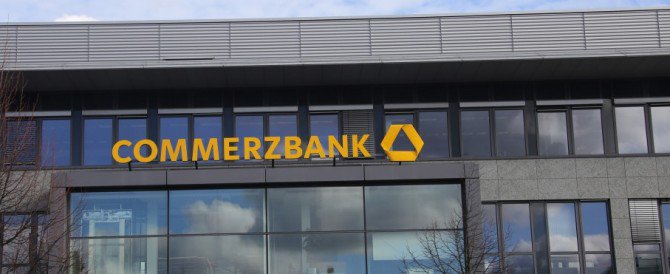HSBC has been in the spotlight following reports alleging the bank aided tax evasion on a global scale. The extent and nature of the allegations have caused HSBC to become the poster child for banks behaving badly. But yesterday’s announcement by U.S. authorities of serious wrongdoing by Commerzbank, one of Germany’s biggest banks, is a stark reminder of a much bigger problem: widespread rule breaking across the banking industry. It begs the question about what can be done to stop this persistent offending?
Commerzbank will pay $1.4 billion to settle charges it violated U.S. anti-money laundering and sanctions laws. The New York banking regulator (NYDFS) said the bank took a series of measures to process illegal payments from banned customers in countries such as Iran and Sudan, totaling over $250 billion. This included stripping information from wire transfers to circumvent checks within the U.S. financial system. It was also found to have weakened its anti-money laundering controls, which led to it facilitating a massive accounting fraud at the Japanese firm Olympus, involving over £1bn in illegal payments.

Commerzbank is not the first to have been hit with a heavy penalty for similar failures. In the last six years BNP Paribas, Barclays, ING bank, Credit Suisse, Lloyds TSB, and JP Morgan have been among the banks handed penalties for hundreds of millions of dollars or more. Standard Chartered have been fined twice after failing to correct the problems they were initially penalised for, and then there is HSBC, given a $1.9 billion penalty in 2012 for serious and widespread anti-money laundering failures. At least another five are currently being investigated for sanctions busting and anti-money laundering offences by the U.S. authorities.
Skewed incentives lie at the heart of the problem. The desire to take on as much business as possible can have a distorting influence. Benjamin Lawsky, who heads up the NYDFS, said “when there was profit to be made, Commerzbank turned a blind eye to its anti-money laundering compliance responsibilities.”
Big fines for banks are not enough on their own, as these are often seen as the cost of business. The day after Credit Suisse received a penalty of $2.6 billion for aiding tax evasion by U.S. citizens, its then Chief Executive said that bank had “seen no material impact on our business.” Importantly these fines target the bank as a corporation and leave individual executives unscathed.
It is vital that senior bankers are held personally responsible when their banks break the rules. This should include executives being fired, losing their bonuses, being barred from practice, or in the worse cases facing criminal prosecutions and then jail if found guilty.
The good news is that the NYDFS is leading the way on this. In the BNP Paribas case last year it insisted that five senior executives at the bank resigned. As a result of its investigation into Commerzbank, one executive resigned, and the bank have been forced to fire four more.
However, the New York regulator stands out as an exception and it’s powers are limited to handing out civil penalties only. Other regulators in the U.S., and around the world, need to follow its lead and take action against senior executives, especially those agencies with the power to pursue criminal prosecutions. Until this happens, the people who run banks will not have the necessary incentives to stop their banks from breaking the rules.
Stuart McWilliam is Senior Campaigner on Money Laundering at Global Witness. You can follow Stuart on twitter here: @Stuartmcw
Photograph: blu-news.org